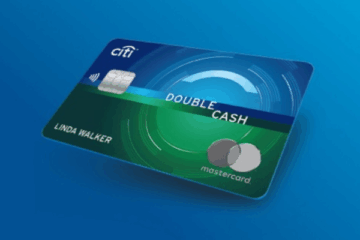Quantum Computing for Beginners: How to Get Started Today
Quantum computing is rapidly becoming one of the most transformative and intriguing fields in science and technology.
Advertising
With its ability to tackle complex problems beyond the reach of classical computers, this groundbreaking discipline holds the promise to revolutionize industries ranging from healthcare to cybersecurity.
Advertising
In this article, we’ll break down the core concepts and explore the exciting real-world applications of quantum computing in a clear and engaging manner.
Qubits and Fundamental Principles
Quantum computing represents a paradigm shift from classical computing. While traditional computers rely on bits—binary units of information represented as 0 or 1—quantum computers operate using qubits, which unlock entirely new dimensions of computation.
Advertising
What Are Qubits?
Qubits are the foundational building blocks of quantum information. Unlike classical bits, qubits harness the principles of quantum mechanics to process and store information. Their unique capabilities include:
- Superposition: A qubit can be in a state of 0, 1, or both simultaneously.
- Entanglement: Qubits can connect so that changes in one instantly affect the other, even over long distances.
- Interference: This allows manipulating quantum states to achieve desired outcomes.
These properties offer significantly greater computational power, especially for complex problems.
Quantum Gates and Quantum Circuits

Quantum computers, like their classical counterparts, rely on gates to perform operations. However, quantum gates operate on qubits, leveraging the principles of quantum mechanics to enable computations far beyond the capabilities of classical logic gates.
These gates are the building blocks of quantum circuits, which are structured sequences of operations that manipulate qubit states.
Key Quantum Gates
Quantum gates are the fundamental operations that manipulate qubits, allowing quantum computers to perform complex calculations. Each gate serves a specific purpose, leveraging the unique properties of quantum mechanics to transform the states of qubits effectively.
- Hadamard Gate (H): Introduces superposition, enabling qubits to exist in multiple states simultaneously, laying the foundation for quantum parallelism.
- Quantum NOT Gate (X): Flips a qubit’s state, functioning as a quantum analog of the classical NOT gate.
- CNOT Gate: Enables interaction between qubits by performing conditional operations, crucial for building entanglement and implementing algorithms.
- Toffoli Gate: A multi-qubit gate used for advanced computations, including quantum error correction and complex logical operations.
How Do Quantum Circuits Work?
Quantum circuits are frameworks that structure operations on qubits to perform specific tasks. They consist of qubits in a defined initial state and a sequence of quantum gates.
These gates manipulate the qubit states, and the final output is obtained through measurement. This process utilizes the unique quantum properties—superposition, entanglement, and interference—to achieve results unattainable with classical circuits.
Quantum Algorithms
Quantum algorithms are at the heart of quantum computing, unlocking its extraordinary potential by leveraging the unique properties of qubits. These algorithms tackle problems that are practically impossible for classical computers, offering revolutionary solutions in various domains.
Examples of quantum algorithms
- Shor’s Algorithm: Factorization of large numbers, essential for breaking modern encryptions.
- Grover’s Algorithm: Efficient search in large databases.
- Quantum Simulations: Modeling complex molecules in chemistry and biology.
The Broader Potential of Quantum Algorithms
These algorithms represent only the beginning of what quantum computing can achieve. As research progresses, new algorithms are emerging to address challenges in optimization, artificial intelligence, and beyond.
The immense power of quantum algorithms highlights the transformative potential of this technology in solving some of the world’s most complex problems.
Applications of Quantum Computing
Quantum computing is no longer a theoretical concept—it is already reshaping multiple industries with its unparalleled processing capabilities. By solving problems that are impractical for classical computers, quantum computing is paving the way for groundbreaking advancements in several key areas.
Benefiting areas
- Healthcare: Molecular simulations for developing new medicines.
- Finance: Optimizing investment portfolios.
- Logistics: Solving complex routing problems.
- Cryptography: Creating more secure systems resistant to attacks.
These applications are just the beginning of quantum computing’s impact. As the technology matures, its integration into various sectors will revolutionize how industries approach innovation, efficiency, and problem-solving.
Challenges and Technological Limitations
Main obstacles
- Quantum error correction: Qubits are extremely sensitive to external interference, which can cause errors.
- Stability (Coherence): Keeping qubits stable for long periods is challenging.
- Scalability: Building quantum computers with thousands of qubits remains a challenge.
Scientists are working on solutions, such as using redundant physical qubits for error correction and developing new materials.
Programming and Quantum Languages
Programming quantum computers introduces a new paradigm, distinct from classical programming. While it involves understanding complex quantum concepts, accessible tools and frameworks are making it easier for developers to dive into this emerging field.
Quantum Programming Languages
Several specialized languages and libraries have been developed to facilitate quantum programming:
- Qiskit: A versatile Python library designed for simulating and programming quantum computers. Ideal for beginners and researchers alike.
- Cirq: Created by Google, it is tailored for quantum algorithm research and experimentation, focusing on circuit-level programming.
- Microsoft Q#: Part of Microsoft’s quantum ecosystem, this language integrates seamlessly with classical programming environments to support quantum development.
Step-by-Step: How to Start Quantum Programming
- Choose a Tool
Start with beginner-friendly platforms like Qiskit or Cirq. - Set Up the Environment
Install Python and the library of your choice. For Qiskit, for example, the process involves basic Python package installations. - Learn the Basics of Qubits and Gates
Explore the principles of quantum states and logic gates. Experiment with simple circuits to understand their behavior. - Simulate Your Code
Use quantum simulators to test your programs before deploying them on actual quantum hardware. - Advance Gradually
As you become familiar with the tools, experiment with more complex algorithms and simulations.
These tools make quantum programming accessible even for those with minimal quantum mechanics knowledge.
Recent Advances and News
Quantum computing is advancing rapidly, fueled by groundbreaking innovations and significant investments. Both companies and governments are racing to lead this transformative field, making steady progress toward practical applications.
From reducing errors to scaling up qubits, these developments are setting the stage for quantum computing to revolutionize industries and address global challenges.
Latest Updates
- Google’s New Quantum Chip
Promises significant error reduction, a critical step toward achieving reliable quantum computations. - IBM Quantum System Two
Represents a leap in scalability, supporting up to 1,000 interconnected qubits, a milestone for practical quantum applications. - Government Initiatives
Countries worldwide are investing in quantum research programs to secure leadership in this transformative technology.
These innovations are accelerating the transition of quantum computing from theoretical to practical, bringing us closer to a future where quantum computers play a pivotal role in solving humanity’s biggest challenges.
Quantum computing is not just a distant promise; it is a revolution shaping the present. From qubits to algorithms, each advancement brings us closer to a world where impossible problems become solvable.
Whether you are an enthusiast or a beginner, diving into this universe can open doors to an extraordinary future.





